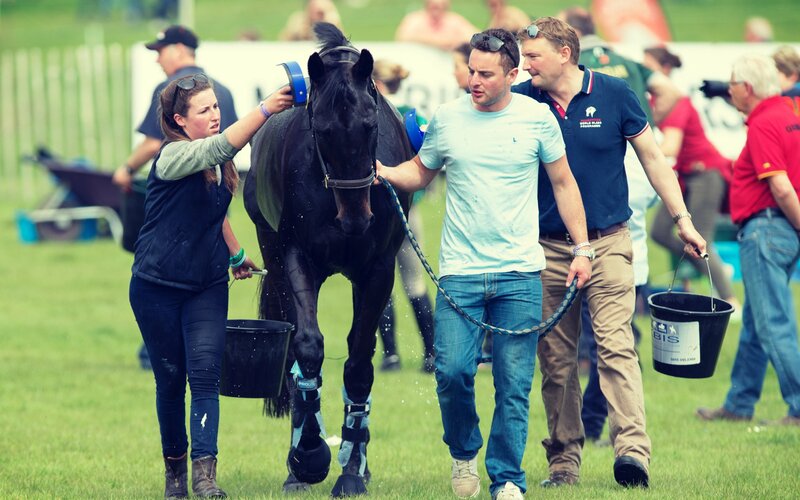
Eventing in hot weather
This weekend a mini-heatwave is due to hit the UK, which is absolutely perfect for lounging in the garden, but requires a bit more consideration if you are out eventing.
The science-y bit
Both exercise itself – in this case horse riding – and the temperature and humidity of the air can increase your core body temperature, and this can put extra stress on your body. One way that the body cools itself is to pump more blood towards the surface of the skin, which means there is less blood going to your muscles, which increases your heart rate.
Another cooling function of your body is to sweat, but if you add humidity into the mix your sweat won’t be evaporated from your skin as rapidly, putting your body temperature even higher.
When you are fit and well your body is pretty efficient at regulating your body temperature, but if you are out in high temperatures and humidity these natural cooling systems are at risk of not working properly. Particularly when exercising, increased sweating and not replacing your fluids are key factors in suffering from heat-related illnesses such as heat cramps, heat stroke and exhaustion.
What you can do
- Know what the temperature is going to be and go prepared.
- Drink plenty of water.
- Consider a sports drink to replace electrolytes. HIGH5’s Zero hydration tabs are ideal to keep in the lorry as you can just add them to normal water to create an electrolyte drink.
- Avoid that celebratory prosecco or night-before beer; alcohol can actually promote the loss of fluids.
- Ride to the conditions and to your and your horse’s fitness – i.e. slow down.
- Dress appropriately (you do not need to wear a jacket in BE competition).
- Wear sun cream, not only to protect your skin from the sun, but if you do get sunburn your body can’t cool itself as well.
For your horse
- As with yourself, the most important factor in caring for your horse in the heat is to keep them hydrated. According to BHS guidelines horses can take on more than double their normal water intake in hot weather. Let your horse drink after exercise, as his thirst will be strongest when he pulls up. It is a myth that drinking cold water after exercise is dangerous. Addressing dehydration as soon as the horse finishes exercise is always in the best interest of the horse.
- Replace lost electrolytes with a supplement in their feed or water.
- Find shade; wherever possible take cover from the sun.
- Be prepared, take more water than you normally would and let them have access to it throughout the day.
- Wash sweat off after each phase to help keep them cool.
- After cross country, walk the horse while washing and scraping off excess water, the air flow through walking will help the water evaporate and cool your horse quicker. Focus on areas with large blood vessels close to the skin such as the neck and inner thigh; this will cool a greater volume of blood faster, along with areas with large muscle mass, such as the quarters, which produce large amounts of heat for movement. You could also try adding a few caps of NAF’s Cooling Wash, which is designed to cool down, relax and refresh tired muscles.
